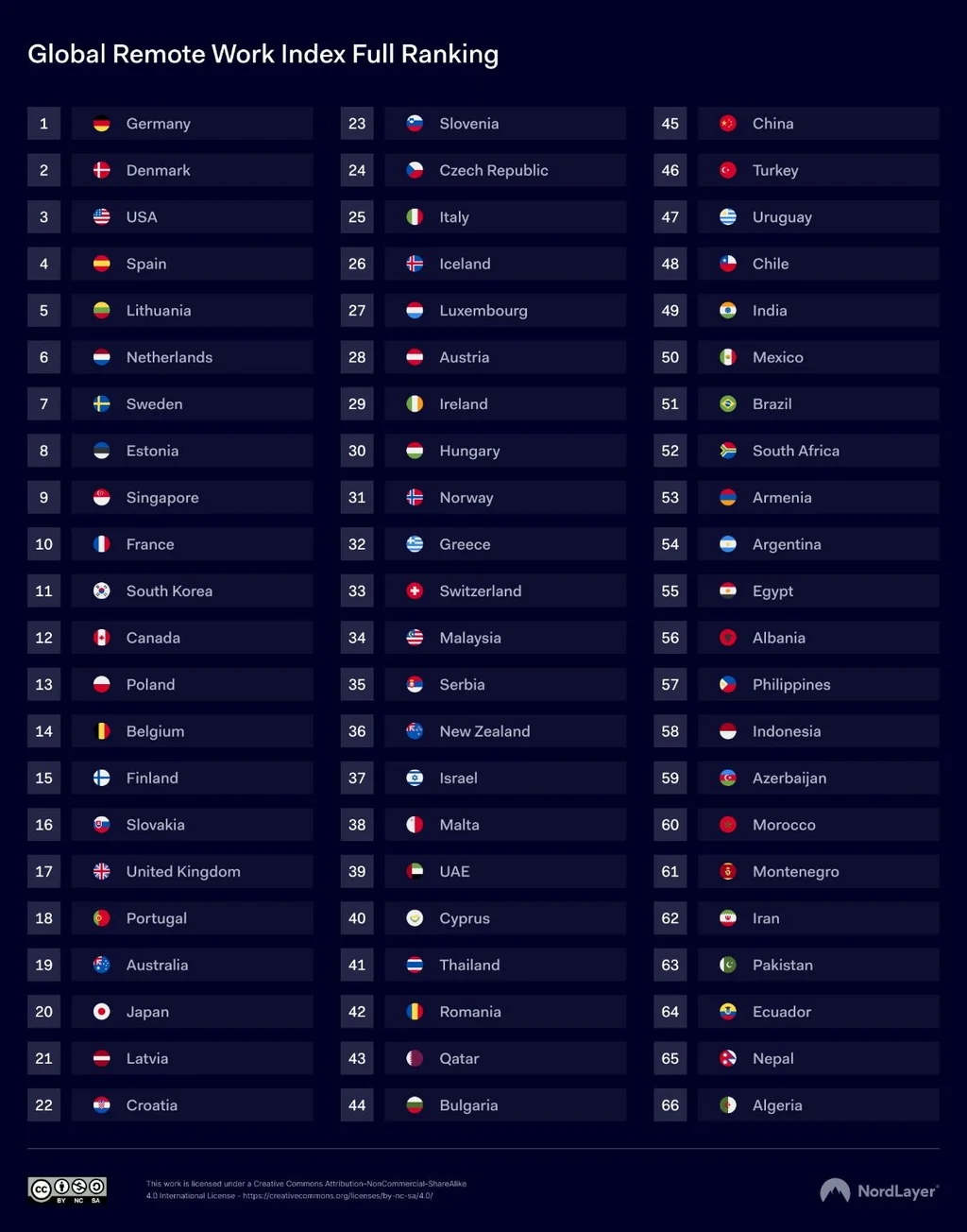Uruguay was among the 50 best countries for teleworkingaccording to the Global Remote Work Index produced by the international technology company Nordlayer.
It should be noted that the list includes 66 countries in totalbecause it was decided not to take other nations into account because they were directly not considered attractive for those who work remotely or are going to do so, as is the case of Russia and several countries in the region.
In fact, in Latin America only Argentina, Brazil, Chile, Ecuador, Mexico and Uruguay were taken into account. With this scenario, Uruguay topped the continental ranking after achieving a score of 0.613, which in turn left it in 47th place globally.
The second in the region was Chile which, with 0.604, also ranked number 48 in the world. Then followed Mexico with 0.585 (place 50); Brazil harvested 0.582 (51); Argentina obtained 0.571 (54) and finally ranked Ecuador with 0.469 (64).
Uruguay was also above other countries such as India (49), South Africa (52) and from the Europeans Albania and Montenegrowhich were positioned in positions 56 and 61 respectively.
According to the ranking published by Nordlayer, the 10 best countries to do home officefrom best to lowest position, Germany, Denmark, the United States, Spain, Lithuania, the Netherlands, Sweden, Estonia, Singapore and France.
NordLayer
Map according to how attractive the countries are for teleworking.
The index was elaborated from four variables: the economic and social conditions of the countries (such as collective peace and monetary stability); its digital and physical structure; levels of cybersecurity and management in the face of a pandemic unleashed by covid-19. This last variable is made up of the percentage of vaccination against this disease in each place and the efficiency of the health system.
Regarding cybersecurity, it was taken into account how safe countries are in this field and what response capacity it provides to possible attacks or scams. He Internet access and comfortable spaces to work available, such as coworks, are the characteristics taken into account in terms of the factor of the digital and physical structure presented by the countries considered.
This index is intended to be a “tool for digital professionals to assess and compare the attractiveness of 66 countries as remote workplaces,” it was expressed on the Nordlayer website when the list was released.
See the complete list below:

NordLayer
Uruguay aims to be the home of digital nomads
Earlier this month, the Uruguayan government authorized a residence permit for digital nomads and foreign remote workerswith which these people will be authorized to work legally within the country from six to 12 months, according to the Uruguay XXI Institute.
In this way, the country was added to the list of places that have special residences for foreigners who travel and work remotely and digitally, residences known as “visas for digital nomads”, as was the case with Brazil, Spain and the United Arab Emirates. Joined. In principle, the permit is granted for a residence of six monthsalthough it has the possibility of extending it for another six months.
This type of residence permit has stood out since the start of the covid-19 pandemic, since many people who worked digitally while traveling the world were stranded for several months in different countries.
















